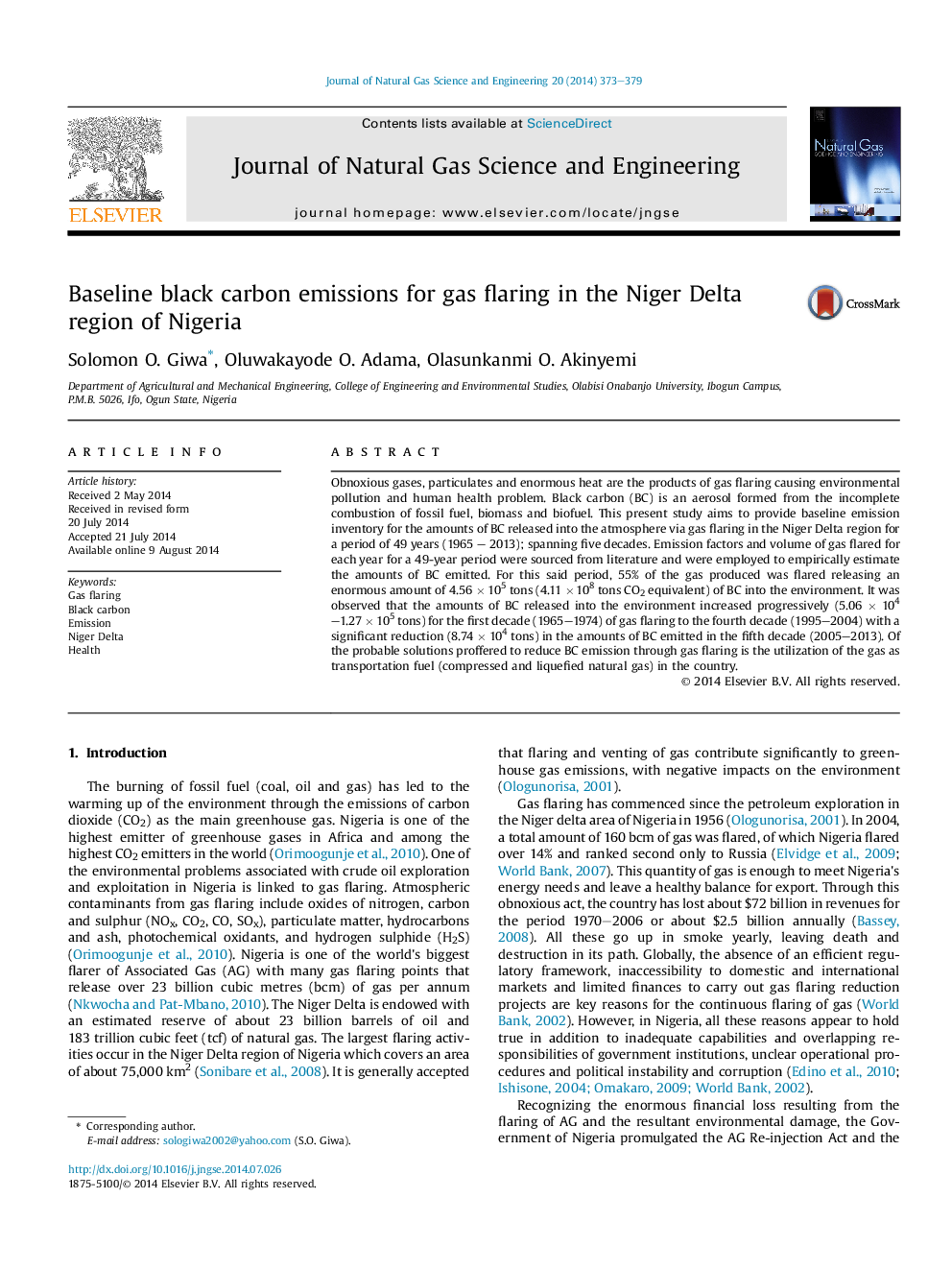| Article ID | Journal | Published Year | Pages | File Type |
|---|---|---|---|---|
| 1757897 | Journal of Natural Gas Science and Engineering | 2014 | 7 Pages |
•Baseline BC emissions from gas flared in the Niger Delta region of Nigeria for a period of 49 years was estimated and presented in this paper.•A total of 4.56 x 105 tons (4.11 × 108 tons CO2 equivalent) of BC was released into the environment from 895.015 billion cubic metres of gas flared for a 49-year period.•$94.87 Billion worth of gas was flared for this period corresponding to an average of $3.52 Billion per year.
Obnoxious gases, particulates and enormous heat are the products of gas flaring causing environmental pollution and human health problem. Black carbon (BC) is an aerosol formed from the incomplete combustion of fossil fuel, biomass and biofuel. This present study aims to provide baseline emission inventory for the amounts of BC released into the atmosphere via gas flaring in the Niger Delta region for a period of 49 years (1965 – 2013); spanning five decades. Emission factors and volume of gas flared for each year for a 49-year period were sourced from literature and were employed to empirically estimate the amounts of BC emitted. For this said period, 55% of the gas produced was flared releasing an enormous amount of 4.56 × 105 tons (4.11 × 108 tons CO2 equivalent) of BC into the environment. It was observed that the amounts of BC released into the environment increased progressively (5.06 × 104–1.27 × 105 tons) for the first decade (1965–1974) of gas flaring to the fourth decade (1995–2004) with a significant reduction (8.74 × 104 tons) in the amounts of BC emitted in the fifth decade (2005–2013). Of the probable solutions proffered to reduce BC emission through gas flaring is the utilization of the gas as transportation fuel (compressed and liquefied natural gas) in the country.
